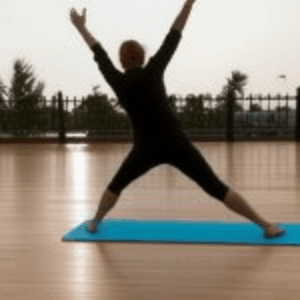Deciding between extra sleep and a morning workout can feel like a daily battle. Both sleep and exercise are crucial for overall well-being, leaving many to wonder which should take priority when time is limited. Experts weigh in on this common dilemma, offering guidance to help you make the best choice for your body and lifestyle.
The Importance of Sleep
Sleep is a fundamental pillar of health, essential for numerous physiological processes. While you sleep, your body undertakes vital tasks such as:
- Hormone Regulation: Sleep plays a key role in regulating hormones that control hunger, stress, and growth.
- Neurological Repair: The brain clears out toxins and repairs neural connections during sleep, which is crucial for cognitive function.
- Muscle Repair: Muscles recover and rebuild during sleep, especially after physical exertion.
- Overall Health: Getting enough sleep helps you get sick less often, maintain a healthy weight, reduce stress, improve your mood, and improve your heart health and metabolism.
The Consequences of Sleep Deprivation
Consistently sacrificing sleep can have detrimental effects on your health. Lack of sleep can lead to:
- Weight Gain: Sleep deprivation can disrupt hormones that regulate appetite, potentially leading to weight gain.
- Increased Cortisol Levels: Insufficient sleep can elevate cortisol levels, impacting blood sugar and increasing insulin resistance. This can increase the risk of conditions like heart attack and stroke.
- Impaired Cognitive Function: Sleep deprivation negatively affects concentration, productivity, and performance. It also affects your ability to remember, concentrate, and make good decisions.
- Weakened Immune System: Lack of sleep compromises the immune system, making you more susceptible to illness.
The Benefits of Morning Workouts
Morning workouts offer a plethora of benefits that can positively impact your day:
- Fewer Distractions: Exercising early minimizes the chances of interruptions, making it easier to stick to your fitness routine.
- Increased Alertness: Morning exercise can enhance focus and concentration, setting a productive tone for the day.
- More Energy: Starting your day with a workout can boost energy levels and reduce fatigue.
- Improved Mood: Exercise releases endorphins, which can elevate your mood and provide an optimistic outlook.
- Healthier Choices: A morning workout can encourage healthier food choices throughout the day.
- Blood Sugar Control: Morning exercise may lower the risk of hypoglycemia, especially for individuals with type 1 diabetes.
- Blood Pressure Management: Regular morning exercise can contribute to managing blood pressure levels.
- Metabolism Boost: Morning exercise can help boost your metabolism.
Prioritize Sleep or Exercise? Expert Opinions
Experts generally agree that prioritizing sleep is more important than sacrificing sleep for a morning workout. Getting enough sleep allows your body to function optimally, promoting mental and physical recovery.
- Leah Kaylor, PhD, MSCP: “If you’re consistently getting less than six to seven hours of sleep just to squeeze in a morning workout, you’re likely doing more harm than good. Staying active is crucial, [but] chronically cutting sleep to fit in exercise can backfire—leading to fatigue, poor performance, and even increased injury risk.”
- William Lu, MD: “I would generally not recommend sacrificing sleep to work out. While exercise is important, neglecting sleep can lead to various negative consequences, including impaired cognitive function and a weakened immune system.”
- Michael Breus, PhD: “Getting enough sleep, which is generally seven to nine hours for adults, should be your foundation, as sleep is essential for overall health, recovery, and exercise performance. However, morning workouts offer benefits like improved consistency and metabolic advantages.”
Making the Right Choice for You
The decision to prioritize sleep or a morning workout depends on several factors:
- Sleep Quality: If you’re consistently well-rested, trading 30 minutes of sleep for a short, light workout may be acceptable. However, if you’re already sleep-deprived, prioritize sleep.
- Stress Levels: High-intensity workouts combined with inadequate sleep can increase your risk of injury. Consider your overall stress levels and how you feel.
- Health Goals: If you are consistently tired, irritable, or frequently getting sick, prioritizing sleep is recommended.
- Individual Needs: The best approach is to listen to your body and determine what makes you feel your best.
Tips for Balancing Sleep and Exercise
Here are some strategies to help you strike a healthy balance between sleep and exercise:
- Prioritize Sleep: Aim for 7-9 hours of quality sleep each night.
- Schedule Workouts Wisely: If possible, schedule workouts for times when you don’t have to sacrifice sleep.
- Adjust Workout Intensity: On days when you’re short on sleep, opt for a lighter workout.
- Listen to Your Body: Pay attention to how your body feels and adjust your routine accordingly.
- Compensate When Needed: If you occasionally reduce sleep for a workout, try to compensate with extra sleep afterward.
- Be Consistent: Sticking to a regular sleep-wake schedule and exercise routine can help regulate your body’s natural rhythms.
- Avoid Late-Night Workouts: Exercising too close to bedtime can interfere with sleep. Aim to finish workouts at least one to two hours before bed.
The Role of Exercise Timing
The timing of exercise can also impact sleep quality. While some people find that morning workouts improve their sleep, others may find that evening workouts are more suitable.
- Morning Exercise: Working out in the morning can help regulate your body’s internal clock and improve sleep quality. It also provides an energy boost for the day ahead.
- Evening Exercise: If you prefer evening workouts, aim to finish at least 1-2 hours before bedtime. Avoid high-intensity workouts close to bed, as they can interfere with sleep. Light activities like yoga or stretching may promote relaxation and improve sleep.
Exercise Ideas
Morning workout routine
Here is a 30-minute bodyweight morning workout routine:
- Warm-up (5 minutes):
- Jumping jacks: 1 minute
- High knees: 30 seconds
- Butt kicks: 30 seconds
- Arm circles: 30 seconds forward, 30 seconds backward
- Dynamic stretching (leg swings, torso twists): 2 minutes
- Workout (20 minutes):
- Push-ups: 3 sets of 10-15 repetitions
- Squats: 3 sets of 12 repetitions
- Lunges: 3 sets of 10 repetitions per leg
- Plank: 3 sets, holding for 30 seconds
- Sit-up variations: 3 sets of 15 repetitions
- Cool-down and Stretching (5 minutes):
- Deep breathing exercises: 1 minute
- Static stretches (hold each stretch for 30 seconds):
- Bicep stretch
- Tricep stretch
- Quadriceps stretch
- Hamstring stretch
- Calf stretch
10-minute perfect morning home workout
- Jumping jacks (for warm-up and cardio).
- Stand with your legs together and your arms by your side.
- Jump, spreading your legs and arms.
- Do for one minute, warming up slowly, before building up speed to get your heart rate up.
- Pectoral stretch (to improve posture)
- Sit upright in a comfortable chair and lift both hands up as if you are surrendering. Then take your elbows back as much as you can and feel the stretch in the pectoral muscles in your chest.
- Do two and hold each for 20 seconds.
- Front planks (for strengthening trunk muscles)
- Lying flat, face downwards on a mat, lift your body up using your toes and elbows. Keep your body as straight as possible.
- Hold for 20 seconds and return to the original position.
- Do one to three times.
The Bottom Line
While both sleep and exercise are vital for a healthy lifestyle, prioritizing sleep is generally recommended. Getting enough sleep ensures that your body can function optimally, recover effectively, and perform at its best. By listening to your body, scheduling workouts wisely, and making adjustments as needed, you can strike a balance that supports both your sleep and fitness goals.







